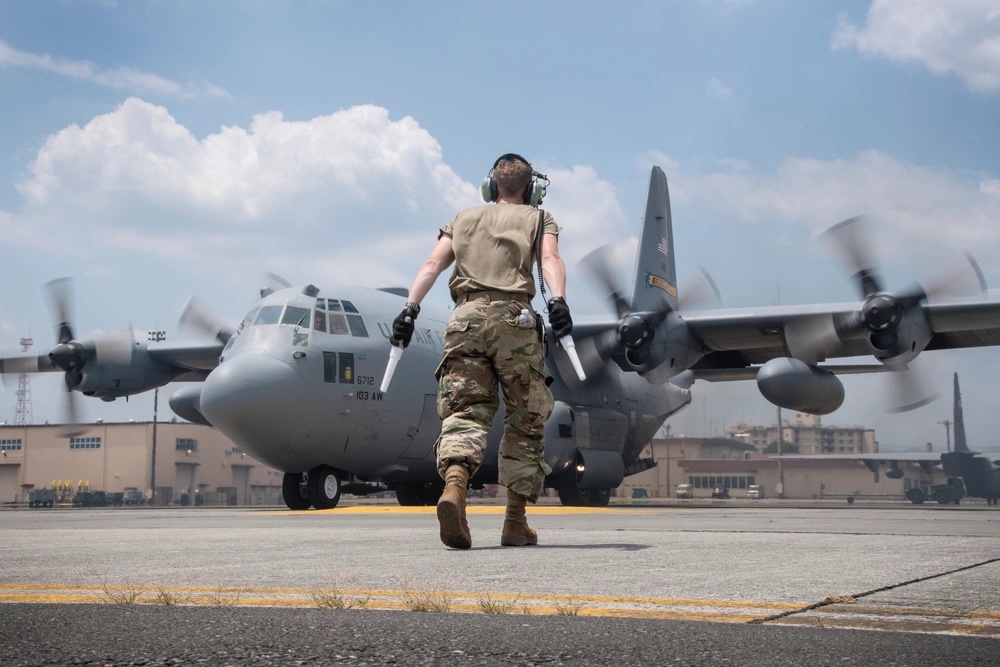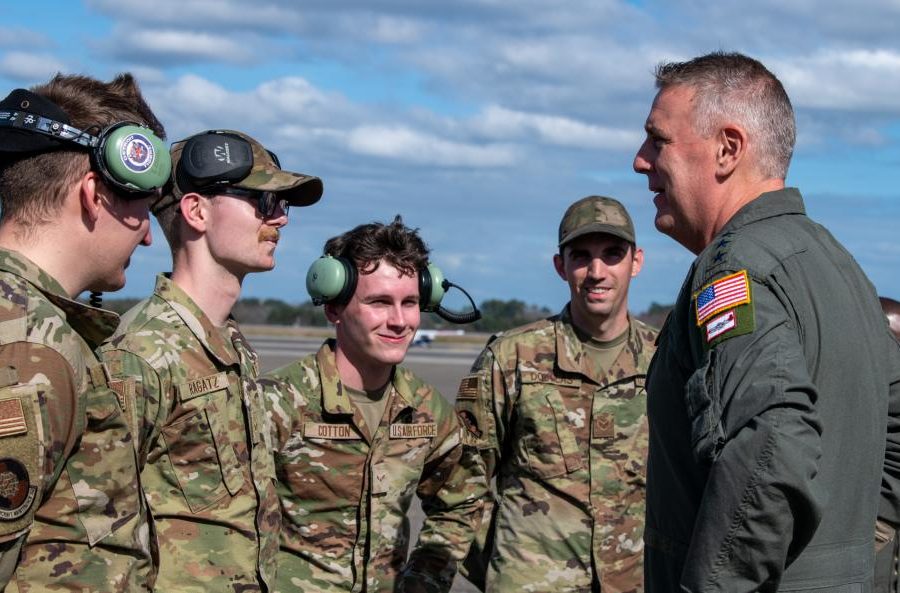In July, Air Mobility Command wrapped up Mobility Guardian 2023, a massive exercise where 70 aircraft, 3,000 personnel, and several international partners practiced moving troops and supplies across the Pacific for two weeks.
After the exercise, AMC boss Gen. Mike Minihan identified three areas for improvement:
- Strengthening command relationships to prevent wasteful efforts during operations
- Enhancing command and control by investing in beyond-line-of-sight communications
- Improving his troops’ ability to ‘explode into theater,’ which is defined by how quickly mobility Airmen can serve the joint force in an unfamiliar environment.
A college football aficionado, Minihan compared himself to a coach “coming off of a win, but a win that didn’t have the magnitude that it was supposed to have,” he told Air & Space Forces Magazine in a recent interview. “So the coach is mad. Not mad in an angry way, but mad in a ‘we can do better’ way. I could not be more pleased with the effort, but we’ve got work to do here.”
Particularly for exploding into theater, Minihan noted that over the past 20 years, Airmen typically had months to prepare for deployments to the Middle East, where they took familiar routes to the desert and had robust support along the way. Mobility Guardian 2023 was meant to provide the opposite experience.
“It was intentionally set up so that we didn’t have all those comforts, that our explosion was done very quickly,” Minihan said. “The en route support was what it was. We didn’t set it up to be successful, we did not set it up to be a challenge, we just let the real world be the real world. And it proved itself to be a handful.”

Minihan said he wants his troops to “understand the urgency for which they need to get into theater, get into the employ phase and that they just won’t be denied that rapid entry.” Cultivating that attitude will take practice in the form of austere exercises, but Minihan said most of the burden for improving the ‘explosion’ falls on him and his headquarters.
“The first mirror check is with me, to make sure that this headquarters is doing everything possible to organize, train, and equip our Airmen for success,” he said. “Have we given everything to our Airmen that they need? Have I given them enough guidance that has depth to it?”
Mobility Airmen already supply troops, respond to natural disasters, refuel aircraft, conduct rescue missions, fight wildfires, and much more. When asked how Airmen are supposed to juggle these responsibilities and practice new war-fighting skills, Minihan was empathetic.
“When you talk about the multiple competing priorities of very important missions as presented by all the combatant commands, both functional and geographic, for a team that’s got 110,000 folks total force and we fly a little over 1,000 airplanes, that’s going to be a handful,” he said.
There will never be enough time, people, and money to meet the burden, which means the command must “invest our intellect” to be successful, Minihan said.
“That’s the responsibility I have,” he said. “I have to create the time and the priority for the team to be ready. I have to understand the ops tempo so that there’s not burnout. I have to create an atmosphere where they can get after the priorities that they need to be successful.”
Part of the purpose of Mobility Guardian was to see how responding to a conflict would go amid Air Mobility Command’s many other duties, duties that are not going away anytime soon. Meanwhile, the general’s advice for how Airmen can be ready to ‘explode’ was simple: ask him for more.
“Be demanding of me, be demanding of me and the team up here,” Minihan said. “We have to make sure that we’re working as hard as the Airmen are on all of these things.”
